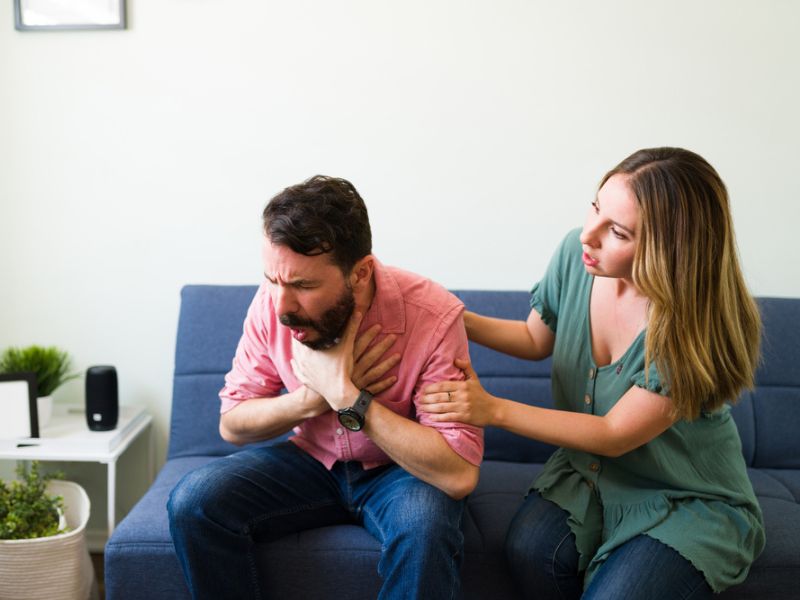You’ll likely witness someone choke at some point in their lives: Choking is the fourth-leading cause of unintentional injury death.
Choking has been a warning since you were young, but would you know what to do if someone around you was choking? Experts say it’s crucial to learn.
Dr. Eric Adkins, an emergency medicine physician, said, “With choking, there’s an obstruction in a person’s airway, and failure to act will, unfortunately, lead to eventual suffocation and asphyxiation.”
Danelle Fisher, chair of pediatrics, says it’s also essential to act quickly. She says, “Sometimes you have minutes or even seconds to reestablish that airway before permanent damage is done. It’s a scary situation that needs an immediate response.”

Image Credit: Shutterstock/tsarev igor
Several organizations, including the Red Cross, offer choking courses. If you don’t have time or won’t get around to taking a class, at least learn some basic emergency preparedness skills. Experts recommend these steps.
How Likely Are You To Choke First?
Even though choking can happen to anyone, Dr. Zeeshan Khan says kids under five and older adults are particularly vulnerable.
Children under 4 are more likely to choke because their airways are smaller, and they don’t know how to handle different food textures.
Symptoms And Causes Of Choking
Generally, food, coins, toys, and balloons are the leading causes of choking in children.
Khan says, “the most common causes of choking almost always involve food in adults. However, he adds, “the elderly may have problems with chewing and swallowing that can lead to choking.”

Image Credit: Shutterstock/antoniodiaz
How To Deal With A Choking Baby
Dislodge the food first if you’re alone. Fisher recommends that if anyone else is there, they call 911. She says, “Your first attempt will be more lifesaving than calling 911 first.”
Fisher suggests holding an infant face down and blowing their backs if they’re under 1.
Taking Care Of A Choking Child
Children who are choking should be given the Heimlich maneuver. A child can be placed on their back, sat upon, or stood upon while you do this. You should carry out a tongue-jaw lift if the child is unconscious.
Taking Care Of A Choking Adult
It’s crucial to ask adults if they are choking, Adkins says. If they indicate that they are, you’ll follow steps similar to those for an infant. When the blows didn’t work, give them five abdominal thrusts.